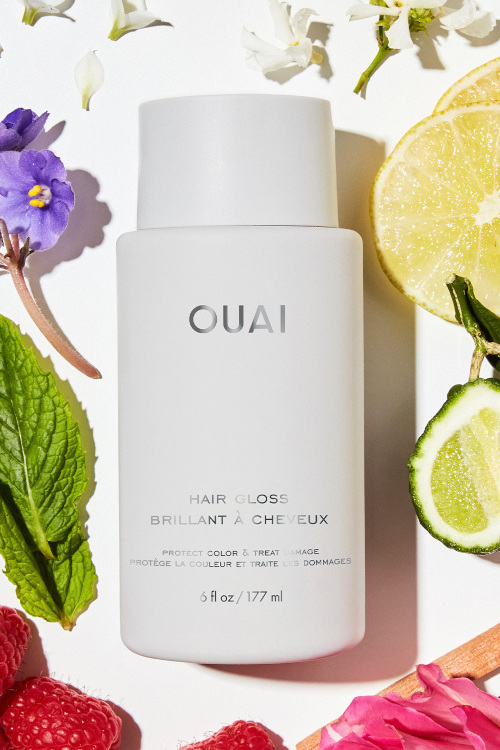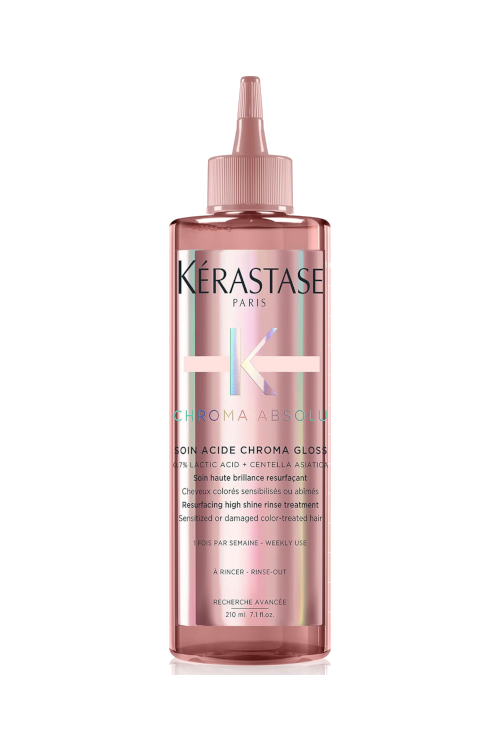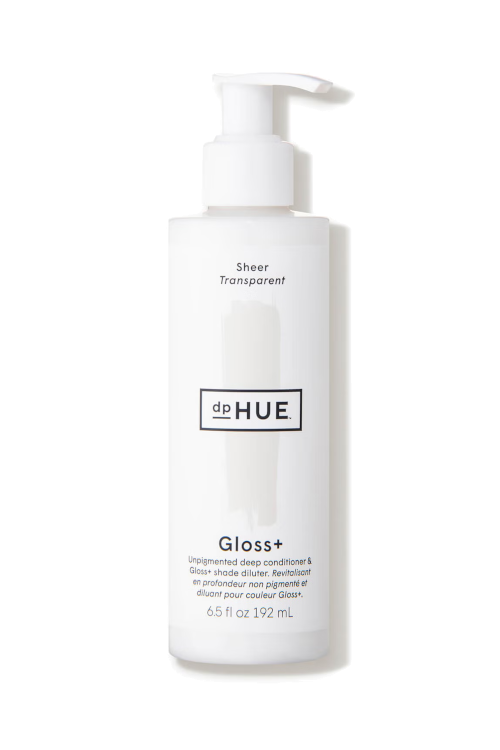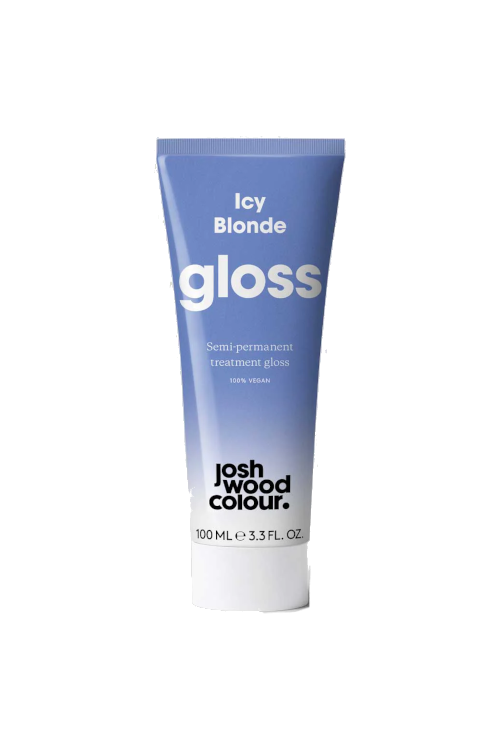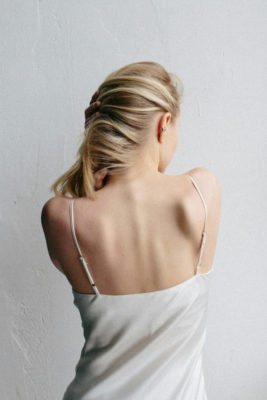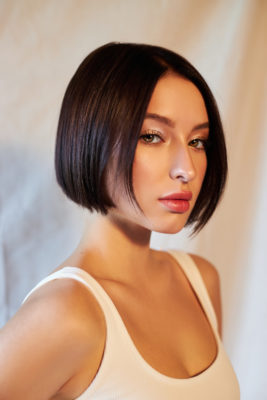
Have You Tried Hair Glossing?
By
11 months ago
Here's why it might be a good time to start
While everyone might have been talking about hair botox last year, 2024 is all about the hair gloss. With over 50 million posts tagged under #hairglossing on TikTok, the trend is definitely booming – but what actually is it? And what do we need to know before trying it out? We ask salon experts to fill us in.
What Is Hair Gloss?
‘A hair gloss is a treatment that adds shine and enhances the colour of your hair,’ explains Sian Wood, Director at Taylor Taylor London‘s Shoreditch salon. ‘It’s often used to refresh hair colour, even tone, define depth, reduce frizz and improve overall hair texture, creating a high-shine effect. The gloss coats the hair with a nourishing formula – sort of like a lip gloss – and you can use it on top of other products, or on its own for a glossy finish.’
‘While all essentially performing the same role – adding vibrancy and shine to hair –they can vary in longevity,’ adds Jamie Holloran, Lead Educator at Taylor Taylor Lonond. ‘This ranges from a temporary gloss, which lasts one to three washes, to longer, demi permanent glosses that last up to 20 shampoos.’
@theouai Shine like Beyonce ✨ #hairgloss #athomehairgloss #hairglosstreatment #shinyhair #shinyhairsecrets #salonathome #ouaihairgloss #ouaihairglossreview ♬ original sound – vicmram
What Are The Benefits?
So, we know that hair gloss is great for giving your hair an overall boost, but what else can it do? For one, they can improve texture and colour. ‘Glosses can be used to enhance either your natural hair colour or a pre-existing professional colour,’ highlights Jamie. ‘Our professional glosses are acidic in nature which helps to rebuild the hair structure, creating shine, silky texture and softness for up to four to five weeks.’
It can also put a stop to any unwanted frizz with regular use. ‘The gloss coats the hair with a nourishing formula, after a glossing service your hair will become smoother and eliminate unwanted frizz for a period of time,’ says Jamie. ‘One of the key benefits of our professional glossing treatments are the acidity levels which effectively help the cuticle to contract and seal in moisture.’
Can Hair Gloss Cover Grey Hairs?
Unfortunately, hair gloss won’t cover any grey hairs – you should leave that job to hair dye – but it can give any existing colour a bit of a refresh. ‘Gloss won’t completely cover grey hairs, but it will help diffuse them and make the greys less noticeable,’ confirms Jamie. ‘Glosses are not an alternative to permanent colour as they don’t penetrate deep into the hair the way a permanent colour does. A gloss sits on the surface or gently under the cuticle, so it can add shine and refresh existing colour but it won’t provide the same level of coverage as a hair dye.’
Good news for brassy blondes, however: ‘Crucially, we can use a gloss to correct any unwanted tones in your hair such as yellow or brassy tones or even help correct your natural colour after prolonged exposure to the sun,’ says Jamie.
Does It Work For All Hair Types?
And luckily, this is a treatment that works for all hair types. ‘Hair glosses can benefit all hair types, whether natural, dyed, curly, coily, thick or fine,’ confirms Sian. ‘This is what makes them so versatile. They’re especially great for those with dull, damaged or dry hair as they help to nourish on the inside whilst giving a high-shine effect on the outside.’
‘Although if you have finer textured hair, it can sometimes weigh it down,’ adds Jamie. ‘It doesn’t change the structure of the hair like a permanent colour, but instead sits on the surface or just under the cuticle of the hair.’
@megslifebelike I bought this ~4 months ago & finally had the courage to try it 🥲 #athomehairgloss #hairglosstreatment #haircare ♬ Sex And The City – Main Theme – Geek Music
Can It Damage Your Hair?
As one of the less invasive treatments on the market, hair glossing is typically less damaging than others. ‘Hair glosses are generally considered less damaging than other hair treatments, as they don’t contain harsh chemicals like ammonia that can be found in permanent hair dyes,’ says Sian. ‘Usually, they’re designed with nourishing ingredients that have beneficial properties to boost hair strength, hydration and overall health, like a tint mixed with a deep conditioner. As with any hair treatment, excessive use can potentially lead to some level of damage.’
How Often Does It Last For?
Hair gloss lasts anywhere from four to 10 weeks, depending on the condition of your hair. ‘Hair glosses are semi-permanent or demi-permanent, meaning they don’t penetrate the hair in the same way a dye would,’ explains Sian. ‘So expect a temporary treatment that washes out anywhere between 12 to 24 washes depending on the formula and your hair porosity and condition. For me, a gloss is really all about enhancing the shine of the hair, and it’s a great first step if you haven’t coloured your hair before, as it gently washes out in around eight to 10 weeks.’
Salon vs Home Hair Gloss
Salon or home treatment? It’s up to you, really. ‘There are plenty of home glossing products on the market, but we would always advise that you use professional products from the salon and then you have the salon guarantee of correct formula, correct acidity and longevity,’ recommends Jamie. ‘Especially if you’re looking to colour correct; when done in a salon, the stylist will know how to create a precise mix for the client’s needs to create a fine-tuned result. If you do want to try a home gloss, then we do recommend Davines finest pigments. It’s more expensive than most home glosses, but if you come into the salon, we can order the correct pigment for your hair, so you get the benefit of our advice and a really fabulous gloss that we can tailor for your hair colour.’
The Taylor Taylor team also tells us there is no real risk of glossing at home, but we should keep in mind that colour gloss is a stain with a runny consistency, so things can get pretty messy. ‘In-salon, we tend to leave the treatment on for around 20 to 40 minutes, but at-home processing times may differ so it’s always important to read the label,’ Jamie says. ‘If you leave it too long, it can over-process and result in a darker colour.’
Featured image: Davide Ragusa, Unsplash




